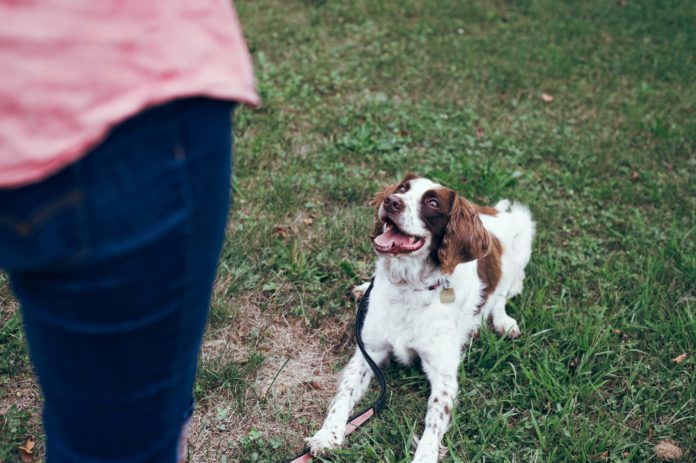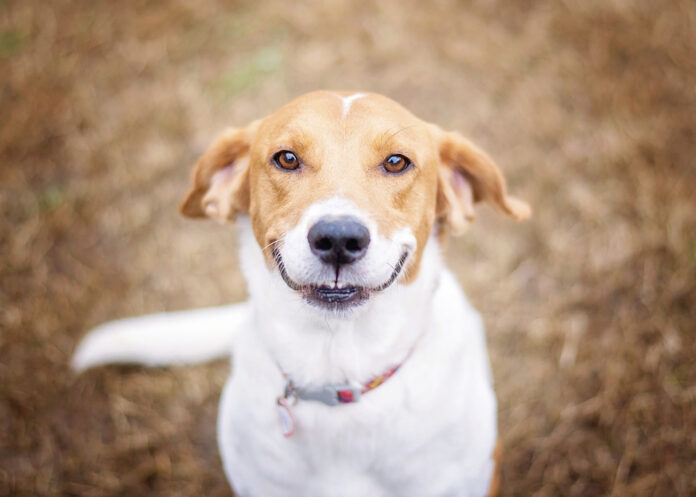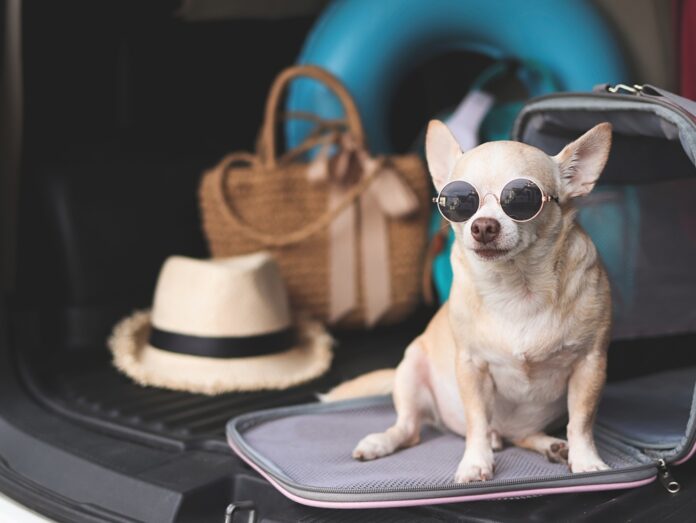How to enhance your dog’s learning ability

Improving your dog’s well-being through things like bodywork, diet, and quality time enhances her learning ability – and her quality of life!
Do you have the power to enhance your dog’s learning ability?
The short answer is “yes”!
While some breeds such as border collies and German shepherds have a reputation for being the “smartest” canines, the truth is that all dogs are capable of retaining and applying a lot more knowledge than you might think. And we can sharpen their intelligence even further! While using the right training approaches is important, you can also enhance your dog’s learning ability by supporting her body, mind and soul. Let’s take a closer look…
Body
Illness and injury can hinder your pup’s willingness and ability to learn and behave, so keeping her healthy is vitally important. Not only will it make her a more successful student – it’ll make her a happier dog!
Make sure she gets enough exercise
A bored dog is a bad-mannered dog. The easiest fix? Exercise! Not only will daily walks keep your pup fit, they’ll burn off her excess energy so she’ll be less scattered during your training sessions.
Feed her a high quality diet
A well-balanced, biologically appropriate diet will vitalize your dog from the inside out, enhancing everything from her physical health to her attention span. Certain supplements can also increase her learning ability. Omega-3s, for instance, support cognitive function, behavior and memory in dogs as they age.
Offer her regular bodywork sessions
Bodywork modalities such as massage, acupuncture, chiropractic, Bowen therapy, Reiki, and T-touch help improve your dog’s wellness on a “whole” level. Depending on what type of bodywork you choose, it can offer help balance your dog’s energy, reduce pain from injuries and muscle tension, induce relaxation, and improve focus – all factors that contribute to an enhanced learning ability.
Use the right training tools
Gentle, size-appropriate tools will protect your pup from harm and encourage her to learn through supportive encouragement rather than manipulation. Prong collars and choke chains, for instance, should be replaced with harnesses and clickers.
Perform regular health checks
In addition to bi-annual vet appointments, performing regular health checks at home can help ensure your canine companion stays in peak physical condition. Remember – the healthier she is, the more ready and able she’ll be to absorb what you teach her! Learn how to do an at-home health check at animalwellnessmagazine.com/home-health-check-dog-cat.
Mind
Psychological enrichment plays a key role in your dog’s learning ability. Here are some tactics you can apply to keep her on her mental game!
Buy her some interactive toys
Engage your pup’s mental faculties on a frequent basis by investing in some interactive puzzle toys! You can also turn suppertime into a skill-testing nose work game by hiding pieces of kibble around the house or yard for her to sniff out. Activities like this will keep her brain sharp and teach her that learning can (and should) be fun!
Be consistent
Always use the same cues and hand signals, and make sure the whole family is on board. Dogs learn through repetition, so it’s important to be patient and repeat the same requests until she catches on. And whatever you do, don’t change the rules! If she’s not allowed on the bed, making an exception on “special occasions” will only confuse her.
Give her time to rest
Dogs need down time, too! Prevent physical and mental burnout by designating plenty of time for her to relax throughout the day.
Keep it challenging (but not too challenging)
To keep your pup engaged during training sessions, find the sweet spot between too easy and too difficult. If she’s struggling to learn, ease up. If she’s catching on too quickly and getting bored, up the ante!
Socialize, socialize, socialize!
No matter how old your pup is, continually expose her to different dogs, people, places, sounds, smells, and other stimuli. Socialization creates positive associations with different experiences so she’ll have less trouble adapting to new environments and requests. (For more info on how to socialize your dog when we have to social distance, turn to page xx.)
Visit animalwellnessmagazine.com/dog-better-student for even more ways to boost your dog’s learning ability!
Soul
When it comes to teaching your pup, don’t overlook the importance of her emotional health! Dogs may not feel in the same ways we do, but studies have shown that they have the capacity to experience joy, fear, anger, disgust, and even love.1 An animal that feels happy and safe will be much more open to learning than one that’s scared or angry, so take steps to nurture her soul.
Use essential oils
Certain essential oils like lavender, vetiver, and valerian are known to improve focus and promote a sense of calm. Diffuse them before training sessions or dilute them and rub them into her coat.
Spend quality time with her
We all know how tough it can be to carve out time in our busy schedules to just be with our canine companions. But building a better bond with your pup will make her feel more fulfilled and eager to please you!
Choose praise over punishment
Positive reinforcement is starting to reign supreme over punishment-based training methods – and with good reason. Humane techniques instill positive behaviors and make training more fun for both of you.
Stick to a routine
Our canine companions thrive on sticking to a routine, so try to establish one that works for both of you – and stick to it! If your schedule is sporadic, try your best to keep feeding, walking, and training times consistent.
Keep her well groomed
Do you feel your best when your hair is matted and you’re covered in dirt? No – and neither does your dog! Boost her mood and behavior with consistent grooming. Some breeds need more attention in this area than others, but as a general rule of thumb, don’t go more than a week without brushing her coat. Nails trims, ear cleaning, and teeth brushing can be left to once or twice a month.
___________________________________________________
1https://www.psychologytoday.com/us/blog/canine-corner/201303/which-emotions-do-dogs-actually-experience




